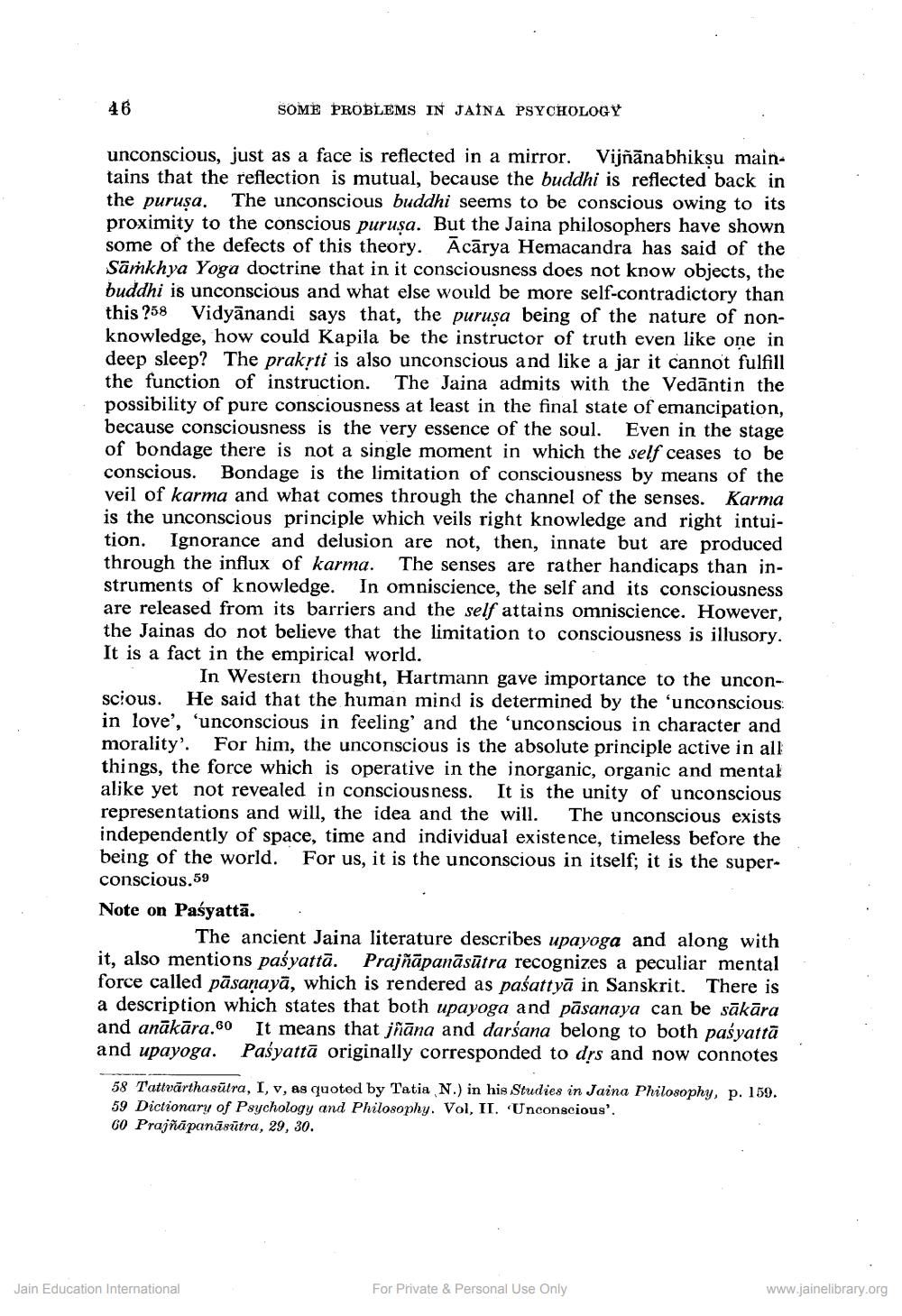________________
46
SOME PROBLEMS IN JAINA PSYCHOLOGY
unconscious, just as a face is reflected in a mirror. Vijñānabhikṣu maintains that the reflection is mutual, because the buddhi is reflected back in the purușa. The unconscious buddhi seems to be conscious owing to its proximity to the conscious purușa. But the Jaina philosophers have shown some of the defects of this theory. Acarya Hemacandra has said of the Samkhya Yoga doctrine that in it consciousness does not know objects, the buddhi is unconscious and what else would be more self-contradictory than this ?58 Vidyanandi says that, the puruşa being of the nature of nonknowledge, how could Kapila be the instructor of truth even like one in deep sleep? The prakṛti is also unconscious and like a jar it cannot fulfill the function of instruction. The Jaina admits with the Vedantin the possibility of pure consciousness at least in the final state of emancipation, because consciousness is the very essence of the soul. Even in the stage of bondage there is not a single moment in which the self ceases to be conscious. Bondage is the limitation of consciousness by means of the veil of karma and what comes through the channel of the senses. Karma is the unconscious principle which veils right knowledge and right intuition. Ignorance and delusion are not, then, innate but are produced through the influx of karma. The senses are rather handicaps than instruments of knowledge. In omniscience, the self and its consciousness are released from its barriers and the self attains omniscience. However, the Jainas do not believe that the limitation to consciousness is illusory. It is a fact in the empirical world.
In Western thought, Hartmann gave importance to the unconscious. He said that the human mind is determined by the 'unconscious: in love', 'unconscious in feeling' and the 'unconscious in character and morality'. For him, the unconscious is the absolute principle active in all things, the force which is operative in the inorganic, organic and mental alike yet not revealed in consciousness. It is the unity of unconscious representations and will, the idea and the will. The unconscious exists independently of space, time and individual existence, timeless before the being of the world. For us, it is the unconscious in itself; it is the superconscious. 59
Note on Paśyattā.
The ancient Jaina literature describes upayoga and along with it, also mentions paśyatta. Prajñāpanasūtra recognizes a peculiar mental force called pasaṇaya, which is rendered as paśattya in Sanskrit. There is a description which states that both upayoga and pasanaya can be sākāra and anākāra.60 It means that jñāna and darśana belong to both paśyattā and upayoga. Pasyatta originally corresponded to drs and now connotes
58 Tattvärthasutra, I, v, as quoted by Tatia N.) in his Studies in Jaina Philosophy, p. 159. 59 Dictionary of Psychology and Philosophy. Vol, II. Unconscious'. 00 Prajñāpansutra, 29, 30.
Jain Education International
For Private & Personal Use Only
www.jainelibrary.org




